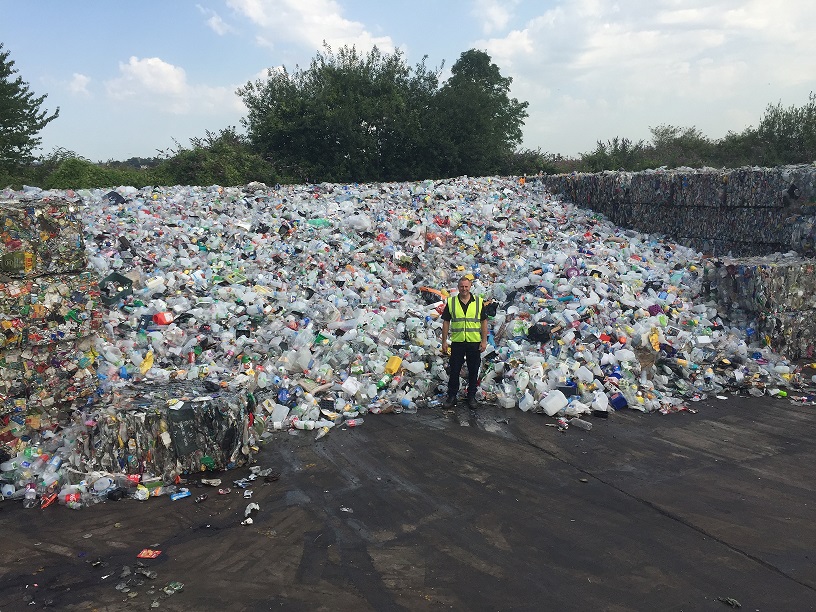“It’s all plastic so why can’t I recycle my plastic bags and food wrappings in Newport?”
The answer is that not all plastics are the same. There are in fact eight different kinds of plastic in common use.
We accept most of them but not what we call plastic film (bags, food wrappers, cling film.)
The reason is that plastic film clogs up the entire recycling process – from collection to manufacturing.
Plastic bags clog up our sorting machines. Below is where the cans are separated from the plastic in our depot. Often plastic bags will end up wrapped around metal or the wheels of the conveyor belts, bringing the whole process to a stop.
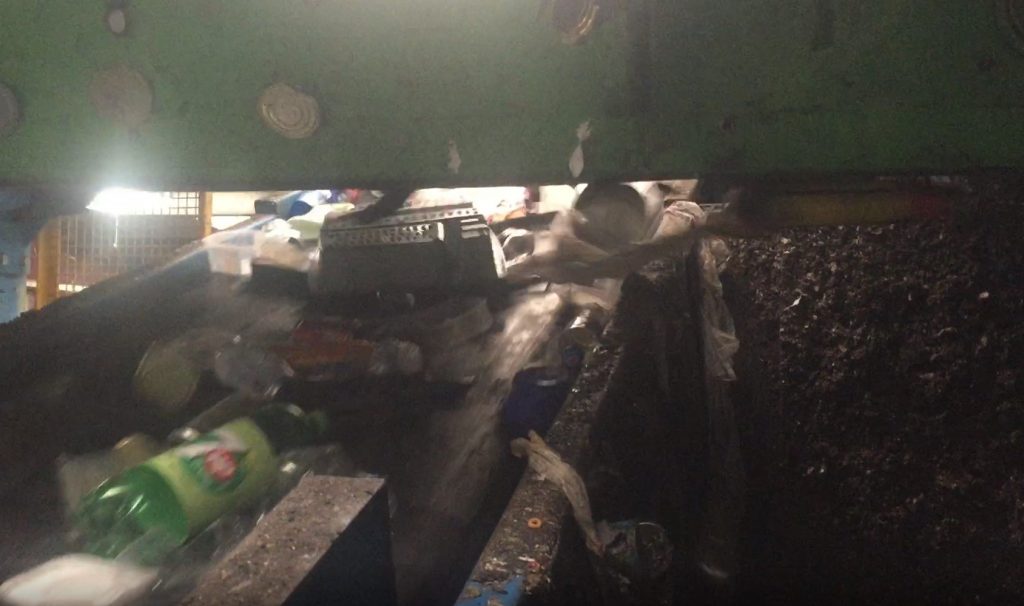
The plastic containers we collect are then compacted into half tonne bales.
The plastic recycling companies do not want plastic film for two reasons:
1. It melts at a different temperature to plastic containers.
2. It clogs up their crushing machinery which is how they separate the different kinds of plastic.
Here’s what happens at the plastic recycling factory. A bale of plastic bottles is first split.
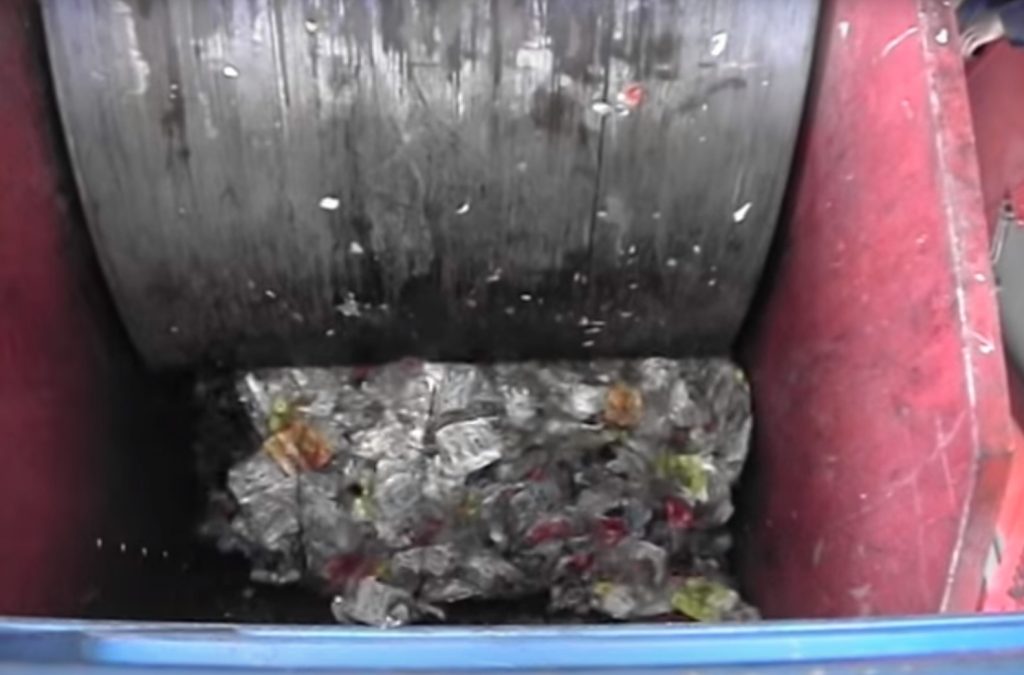
The roughly separated bottles then enter the cutting machine. These machines shred the bottles. It’s easy to see how plastic bags clog up these blades.
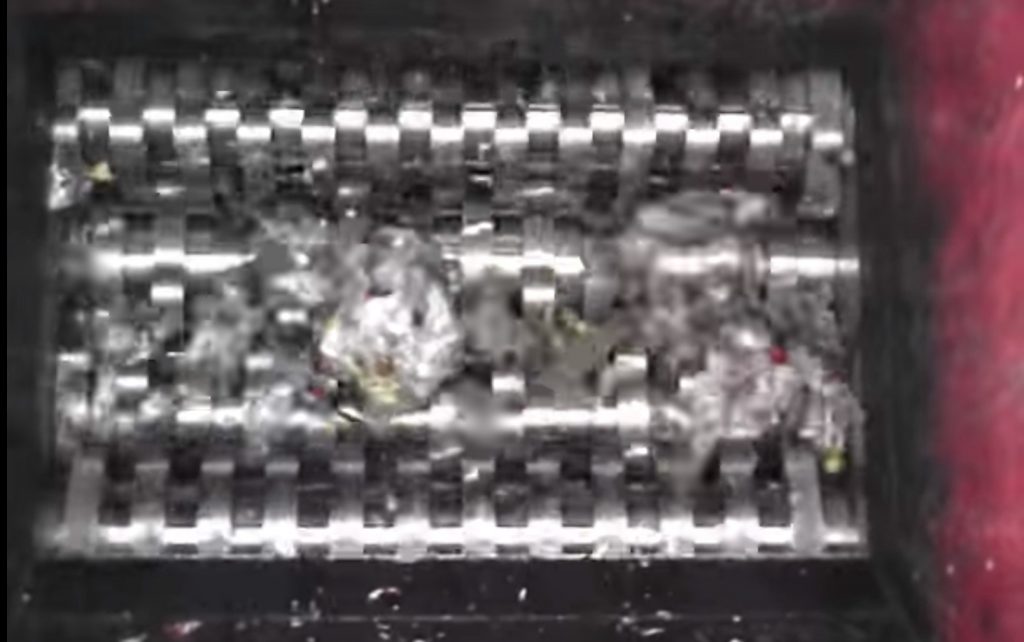
It’s the same as putting a plastic bag into your paper shredder; you wouldn’t do it.
The shredded plastic is then washed, separated by colour and re-melted into either pellets or flakes to be used again.
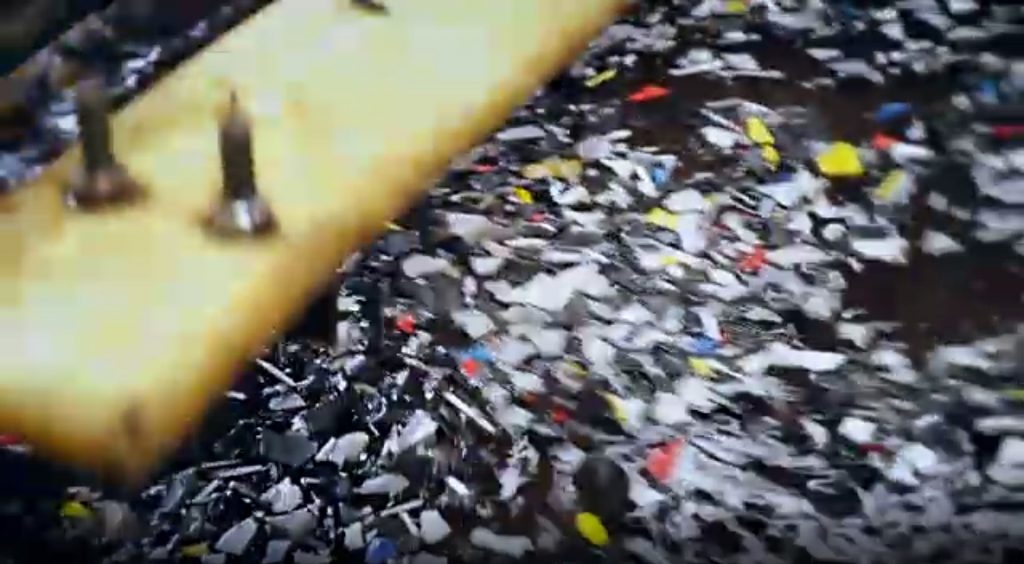
To put a bit of scale on this – below is one day of plastic we collect from Newport alone. Five of these mountains go out every week – considerably more at Christmas and Easter.
